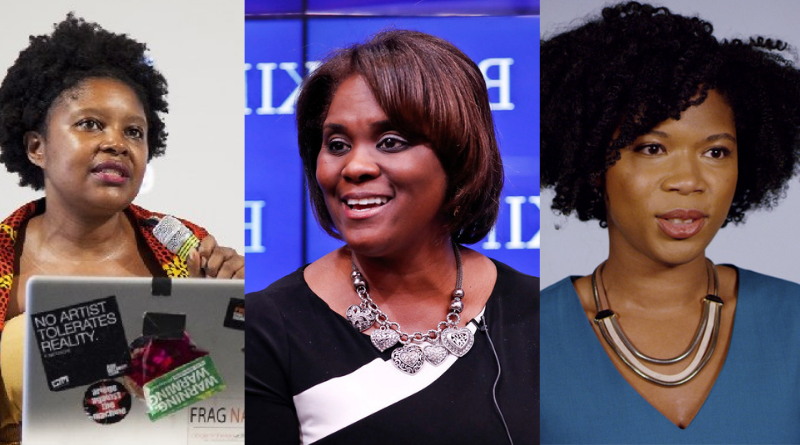Race, Technology, and Digital Inequality
The Hitachi Center, in collaboration with Fletcher LEADS (Leadership, Diversity, and Equality) presented a discussion on digital inequality on 30th September 2020, featuring Dr. Nicol Turner Lee of The Brookings Institute; Mutale Nkonde, Founder & CEO AI for the People (AFP); and Monica Anderson, who is the Associate Director of Research at the Pew Research Center. The panel was moderated by David Mbai, a student at The Fletcher School specializing in technology policy.
As a senior fellow in Governance Studies and the Director for the Center for Technology Innovation at The Brookings Institute, Dr. Turner Lee’s research focuses on equitable access to technology across the United States. She has been working on a book called Digitally Invisible, which discusses how technology has been widening the gaps between social classes, and racial and ethnic minorities in the United States. Mutale Nkonde is a former broadcast journalist who produced documentaries for the BBC, CNN, and other news organizations. Now, as the founding CEO of AI for the People and fellow at the Berkman Klein Center, she writes about race and its intersection with technology. Monica Anderson is associate director of research at Pew Research Center primarily studying internet and technology issues.
The discussion focussed primarily on issues relating to pre-existing social, economic, and racial divisions which have been amplified by technology, especially during the pandemic. It is both interesting, as well as a little bit disheartening to note that technology, the primary purpose of which has been to solve social problems, has played such a big role in exacerbating them. Disinformation is more prevalent than ever as opportunities have dwindled and the digital divide has widened. Especially during the pandemic, the digital divide and the effect it has on Black and Hispanic communities has manifested itself in a variety of ways. One of the bigger issues here has to do with the gaps between Black & Hispanic, and White communities when it comes to Broadband and internet connectivity.
In her work at the Pew Centre, Monica Anderson found that a disproportionately high number of people in the Black and Hispanic communities cited broadband connectivity issues as a problem, as opposed to people in White communities. Thus, while one in four Black Americans identified themselves as “smartphone-only internet users”, this number was much lower, around 10%, among White communities. In turn, this means that people who only use smartphones for internet tend to run out of their data plans quickly, and may not be able to afford their phone bills. For people who rely on their smartphones to find employment, running out of data has been resulting in their unemployment for prolonged periods of time.
As a sociologist, Dr. Turner Lee’s research has found that advancements in surveillance and other technologies, especially facial recognition technologies, are inherently discriminatory towards Black Americans. While such discrimination may not stem from explicit racism, the inherent and unconscious biases of the companies that produce this software, and the people who write these codes do play a role. Both Dr. Turner Lee and Mutale Nkonde advocated that these problems of discrimination can only be solved when there is diversity in these technological spheres. The tech companies by themselves are not responsible for preserving democracy or democratic institutions, especially when their primary goal is profit. Further, these companies were not created by people of color, and so generally speaking, they wouldn’t represent the interests or the experiences of the Black and Brown communities. However, a more diverse workforce, one that engages Black people and other people of color in all stages of developing a technology or making a product would contribute to reducing these biases and making technology more equitable.
On the flip side, the positive impacts that technology and social media have had, especially when it comes to mobilizing communities in times of crisis, were also discussed. Telephone trees of the 20th century have given way to social media platforms and hashtags. Social media has, over the years, become an effective activism tool. In fact, new policies regarding body cams have come out of the hashtag movement.
Developments in science and technology have, in many ways exacerbated the social and economic issues faced by people of color, and in both the policy sphere, as well as within the tech companies themselves, these issues can only be addressed by listening to Black and Brown people and hiring them into these spheres. Their lived experiences would contribute to making the internet a more equitable place.
You can see the discussion, including Q&A with our Fletcher students here.

